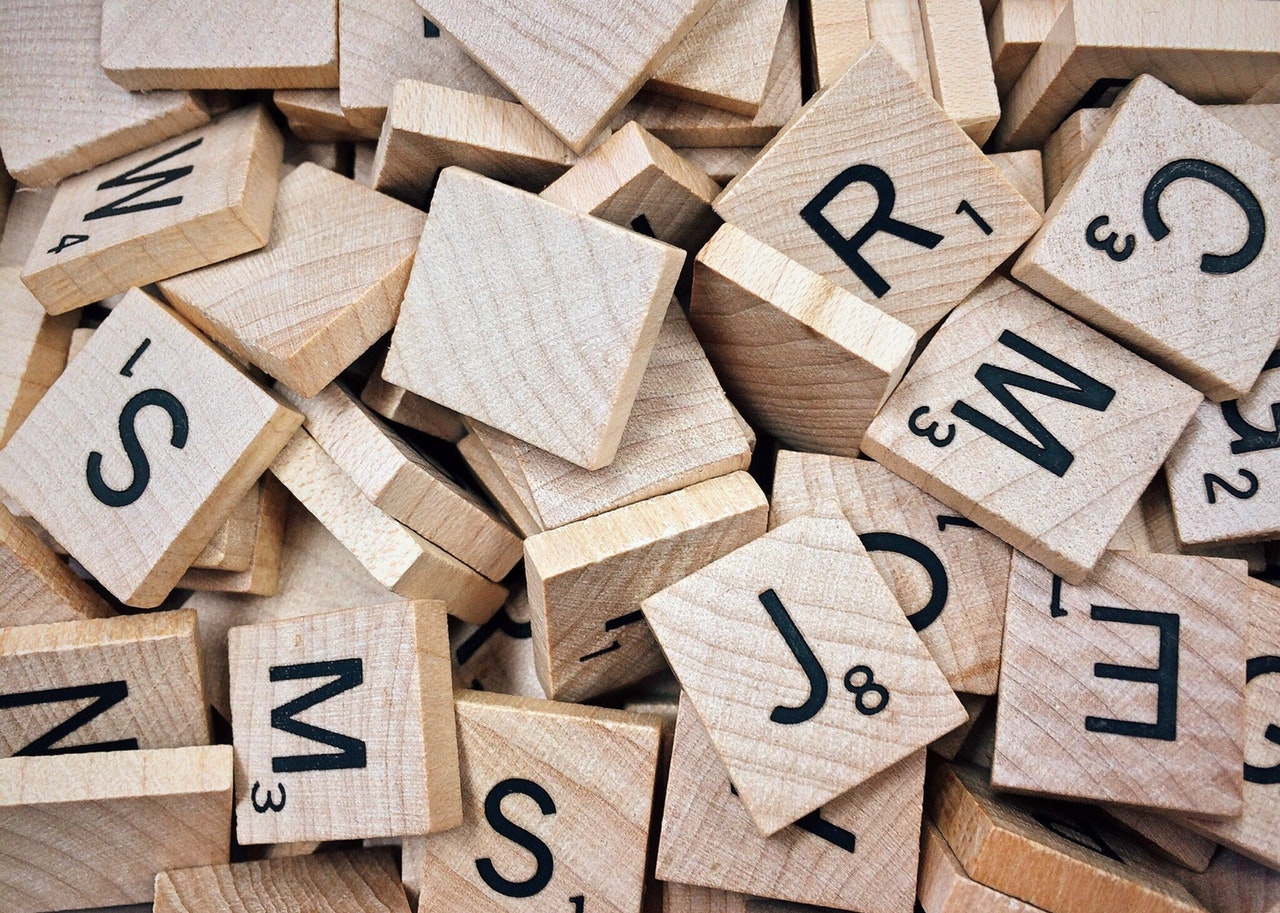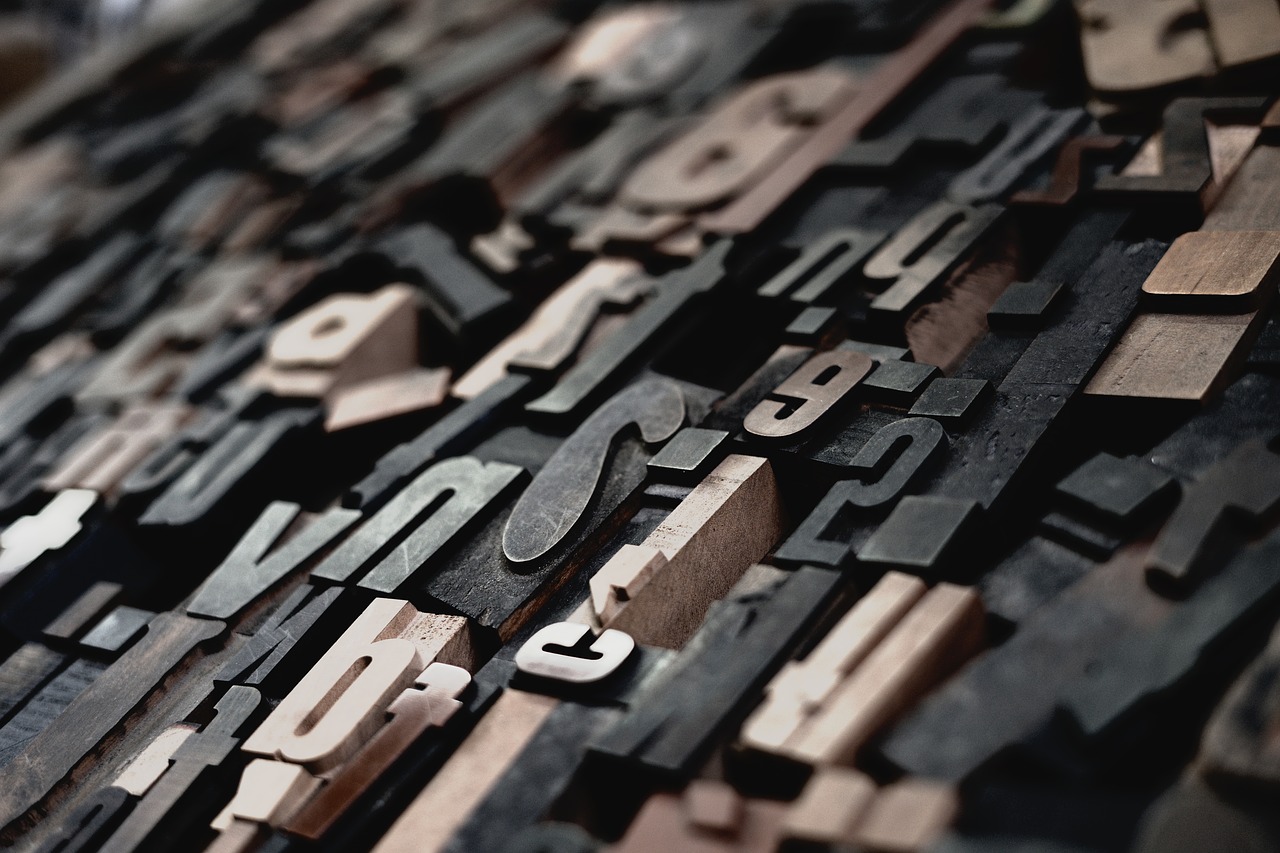Here we’ve prepared a guide for you with everything you could possibly need to know about the German alphabet. Here’s what you will learn:
- Why it’s important to learn the German alphabet and how to pronounce it;
- How many letters the German alphabet has;
- How to read the German alphabet letters;
- The German phonetic alphabet, also called the German spelling alphabet;
- The sounds in the German language;
- Audios, videos, and songs to help you learn the German alphabet;
- Tips for remembering how to pronounce the German alphabet;
- How to improve your German with Global General.
So if you’d like to know how to improve your German thanks to the German alphabet, keep on reading!
Let’s get started.
German Alphabet: Why Is It Important to Learn and Know It?
We all learn the alphabet in our native language in kindergarten, but people rarely pay much attention to it when learning a foreign language. “I just want to be able to speak!” they say. “I will never need the German alphabet!” … until one day, they do.
You probably have a very good reason to be studying German: perhaps it’s to make new German friends when you travel, or to communicate with German clients or colleagues at work, to take a German degree abroad, or to be able to move to a German-speaking country one day.
Whatever your goal is, you will surely need to use the German alphabet sooner or later. And it usually happens sooner, when you find yourself needing to spell your name, email address, or even your social media handles to a German. If you’re on a computer, you can easily just type out and send the letters — but what if you’re talking on the phone? Can you imagine having to say, “Err, sorry, can I send you an email with the spelling?” Undoubtedly, the next thing you would need to do is write down their email address — for which you still need to know German letter pronunciation!
If you wish to learn to read in German, learning the alphabet is the first step you must take!
As you can see, not knowing how to read the German alphabet can easily get you into embarrassing situations, possibly even costing you job opportunities because it’s difficult to communicate with you, or simply making life harder. So don’t take shortcuts — make sure you cover all your basics and properly learn the basic rules of German pronunciation!

How Many Letters Are in the German Alphabet? Explanation
If you need to learn the German alphabet (which you do!), one of your first questions will probably be “how many letters are there in the German alphabet?”
Just like in English, the German alphabet has 26 letters, but it additionally has three Umlaut vowels (Ä,Ö,Ü) as well as a ligature (ß). So the good news is that there is not an enormous quantity of letters, and therefore learning the German alphabet pronunciation will not take very long! This in return can help you focus on your German accent and pronunciation.
German Alphabet Sounds: How Does the Pronunciation Work?
Knowing the German alphabet is easy — but it’s useless to you if you don’t learn how to read the letters! Below is a table that will show you the German alphabet pronunciation so that you can spell anything you need to in German.
| Alphabet letter | How to pronounce the letter |
|---|---|
| A | “ah” |
| Ä | “ah” mit Umlaut |
| B | “bay” |
| C | “tsay” |
| D | “day” |
| E | “ay” |
| F | “eff” |
| G | “gay” |
| H | “hah” |
| I | “eeh” |
| J | “yot” |
| K | “kah” |
| L | “ell” |
| M | “em” |
| N | “en” |
| O | “oh” |
| Ö | “oh” mit Umlaut |
| P | “pay” |
| Q | “koo” |
| R | “air” |
| S | “es” |
| ß | Eszett / scharfes S |
| T | “tay” |
| U | “ooh” |
| Ü | “ooh” mit Umlaut |
| V | “fow” |
| W | “vay” |
| X | “iks” |
| Y | “oopsilohn” |
| Z | “tset” |
What Is the German Phonetic Alphabet? Presentation and Guide
Of course, it’s essential to know how to pronounce German letters — but another pronunciation tool which will greatly help you communicate clearly is the German phonetic alphabet. “Oh no, another alphabet?” Indeed, but rest assured that learning the German phonetic alphabet, also called the German spelling alphabet, will definitely pay off!
The idea is that because letters are extremely short, they can sound very alike, and if there is background noise or a bad connection, they can be easily misunderstood or even missed by the listener. The phonetic alphabet therefore uses entire words that begin with those letters instead of just the letters. This ensures that even if you can’t clearly hear all the sounds in the word, you’ll know with certainty what word and by extension which letter the person said, since the word is longer and not similar to any of the other words in the phonetic alphabet. This is therefore a big help in avoiding misunderstandings when spelling things on the phone or over the radio.
Even if you don’t use this method yourself, it’s good to be familiar with it so you’re not confused if a German uses it with you! (And, if you’re not confident with reading German letters yet, using the German phonetic alphabet is an excellent way around having to pronounce them!) Some Germans use the NATO phonetic alphabet, others just use whichever German words come to their mind the fastest. Here is the NATO phonetic alphabet and a commonly used German phonetic alphabet below:
| Alphabet letter | NATO Phonetic Alphabet | German Phonetic Alphabet |
|---|---|---|
| A | Alfa | Anton |
| Ä | - | Ärger |
| B | Bravo | Berta |
| C | Charlie | Cäsar |
| D | Delta | Dora |
| E | Echo | Emil |
| F | Foxtrot | Friedrich |
| G | Golf | Gustav |
| H | Hotel | Heinrich |
| I | India | Ida |
| J | Juliett | Julius |
| K | Kilo | Kaufmann |
| L | Lima | Ludwig |
| M | Mike | Martha |
| N | November | Nordpol |
| O | Oscar | Otto |
| Ö | - | Ökonom |
| P | Papa | Paula |
| Q | Quebec | Quelle |
| R | Romeo | Richard |
| S | Sierra | Samuel |
| ß | - | Eszett / Scharfes S |
| T | Tango | Theodor |
| U | Uniform | Ulrich |
| Ü | - | Übermut |
| V | Victor | Viktor |
| W | Whiskey | Wilheim |
| X | X-ray | Xanthippe |
| Y | Yankee | Ypsilon |
| Z | Zulu | Zacharias |
Learn the German Phonetic Sounds: Vowels and Consonants
German phonetic sounds are not something that will help you with spelling, but rather they will help you understand German pronunciation a little better, and how each letter of the alphabet may sound in the context of different words. The charts below show the main sounds that constitute the German language, divided into consonant sounds and different kinds of vowel sounds.
Consonants:
| IPA sound | Letters that can produce that sound | English pronunciation (approximation) | German word example | English translation of German example |
|---|---|---|---|---|
| /b/ | B | bed | Buch | book |
| /ç/ | CH | hue | ich, Kirche | I, church |
| /d/ | D | doll | danke | thank you |
| /d͡ʒ/ | DSCH | jam | Dschungel | jungle |
| /f/ | V, F | foot | Vater, Fuss | father, foot |
| /ɡ/ | G | game | gestern | yesterday |
| /h/ | H | hand | Hund | dog |
| /j/ | J | yard | Jacke | jacket |
| /k/ | K, G | cat | Katze, Tag | cat, today |
| /l/ | L | lay | Land | country |
| /m/ | M | man | Mutter | mother |
| /n/ | N | name | Nacht | night |
| /ŋ/ | NG | song | lang | long |
| /p/ | P, B | pig | Paar, Abfahrt | pair, departure |
| /p͡f/ | PF | cup full | Pferd | horse |
| /ʁ/ | R | like a French R | reich | rich |
| /s/ | S, SS, ß | sea | Wasser | water |
| /ʃ/ | SCH, ST, SP | shell | Schokolade, Strand | chocolate, beach |
| /t/ | T, D | tell | Tochter, Bad | daughter, bath |
| /t͡s/ | Z | tsunami | Zahl | number |
| /t͡ʃ/ | TSCH | watch | Deutsch | German |
| /v/ | W, V | vase | was, Vase | what, vase |
| /x/: [x], [χ] | CH | loch (Scottish) | Bach | Bach |
| /z/ | S | nose | Hosen | pants |
| /ʒ/ | G | beige, measure | Genie | genie |
| [|] | the glottal stop in uh-oh! | Beamter [bəˈ|amtə] | official |
Vowels:
You must absolutely learn the German vowels and their pronunciation if you wish to speak the language. Below you will find all the vowels in German:
| IPA sound | Letters that can produce that sound | English approximation | German example | English translation of German example |
|---|---|---|---|---|
| Monophthongs | ||||
| /a/ | A | bra (but shorter) | machen | to do |
| /aː/ | A | bra | Bahn | railway |
| /eː/ | E | base | sehr | very |
| /ɛ/ | E, Ä | red | nett, hätte | nice, would have |
| /ɛː/ | Ä | like above but longer; | wählen | to choose |
| /iː/ | I, IE | sleep | Spiel | game |
| /ɪ/ | I | bit | bist | (you) are |
| /oː/ | O, OO | similar to bone | Boot | boat |
| /ɔ/ | O | cross | Ost | East |
| /øː/ | Ö | similar to hurl or “deux” in French | schön | pretty / nice |
| /œ/ | Ö | similar to hurt or “sœur” in French | Löffel | spoon |
| /uː/ | U | blue | Hut | hat |
| /ʊ/ | U | book | Dusche | shower |
| /yː/ | Ü | like “rue” in French | fühlen | to feel |
| /ʏ/ | Ü | like above but shorter | müssen | must |
| Diphthongs | ||||
| /aɪ/ | EI, AI | lie | drei | three |
| /aʊ/ | AU | now | Haus | house |
| /ɔɪ/ | EU, ÄU | toy | Euro | Euro |
| Reduced vowels | ||||
| /ɐ/ | ER | sun | Oktober | October |
| /ə/ | E | comma | bitte | please |
Audio Tracks, Videos, and Songs to Help You Understand German Pronunciation
If you’re looking for audio tracks, videos, and songs to help you learn and memorize the German alphabet and how to pronounce German letters, the most obvious place to look is… YouTube! With plenty of free videos made by German language teachers, you’re sure to find a lot of useful materials just by typing “German alphabet” in the search bar.
Here is an example of a video which shows you how to pronounce each letter of the German alphabet: https://www.youtube.com/watch?v=wpBPaDI5IgI&ab_channel=SunnySu
If you prefer working with websites, you’re sure to find lots of audio tracks for the German alphabet pronunciation by searching on Google as well. For example, https://learn-german-easily.com/alphabet includes an audio track of a person slowly reading out each German letter, as well as more useful information.
Another useful website is https://learngerman.dw.com/en/abc/c-39621991, which features exercises and listening practice for each individual letter of the German alphabet. Try their interactive audio exercises to see if you can correctly recognize each letter!

Tips for Memorizing and Remembering the German Alphabet
Memorizing the alphabet can feel a little mundane… how can we make it more interesting in order for you to accurately learn the correct pronunciation of all the German alphabet letters?
One great method is one you may have already experienced in your native language: learn the German alphabet letters in a song! It may feel a little silly, but just give it a try and see how effective it can be. Songs have a way of getting stuck in our heads… let’s use that to our advantage! There are a variety of German alphabet songs on Youtube that you can choose from to find the one that you like the best.
Another great way to help you memorize the German alphabet pronunciation is to try teaching it to a child — for instance, have them sing along with you and a German alphabet song. There’s nothing like trying to teach something to test how well you know it, and you can have a little fun with a younger family member at the same time!
Here are a few different versions of the German alphabet song:
- Normal German alphabet song: https://www.youtube.com/watch?v=zxQXEyMMC0E&ab_channel=EasyOnlineGerman
- Normal German alphabet song, followed by individual letter pronunciation: https://youtu.be/iEaQVdCwhsI
- German rap alphabet song (with words): https://youtu.be/OMqQtB9hjdU
- German alphabet song for kids: https://www.youtube.com/watch?v=E8TddgtLYsQ&ab_channel=Lernmitmir-ABC123
- German “Kinderpunk” alphabet song for kids: https://youtu.be/Nu5VfG3cnD8
- German “Sissi” alphabet song for kids: https://youtu.be/ROfR51L0d-g
How to Improve Your German Proficiency With Global General
Learn comprehensive German, including how to read German letters, easily and quickly with Global General. This is an e-learning method developed by GlobalExam, helping beginners and intermediate students learn German effectively (as well as four other languages: English, Spanish, French, and Italian) easily and online.
Each language is divided into levels according to the CEFR standards and takes a minimum of 12 hours of studying to complete (except for English, which takes 25).
With Global General, your German studies will be comprehensive and hassle-free. Here is what we can offer you:
- Countless flashcards to help you train your memory and learn new German words fast
- Simulations to let you practice your German in real context, including a strong focus on good pronunciation
- A fun “did you know” section with facts about the German language and culture
- 5000 detailed corrections
- Personalised feedback from our dedicated language coaches
- Validation of the acquired competencies after every 5 simulations
- 150 hours of unique content
- 500 audio tracks to learn correct pronunciation
Here’s why Global General is the best way to learn German
As a German learner, you need a method which is easy to use, efficient, and above all, which covers all the basics without leaving out anything important — like the alphabet for example! Many websites skip right to the “interesting” things and leave gaps in students’ knowledge. This isn’t the case with GlobalExam! We make sure you learn everything you will need in order to be able to communicate with confidence and ease in any real life situation. What’s more, you can study wherever and whenever it suits you best, from the comfort of your home, the office, or even the park or a vacation spot. But don’t worry, that doesn’t mean you’ll be alone in your journey — GlobalExam has a team of qualified German language coaches ready to give you personalised feedback and keep you on the right track.
We’ve got everything covered for your German studies — all that’s left for you to do is sign up and start learning German today with GlobalExam!


